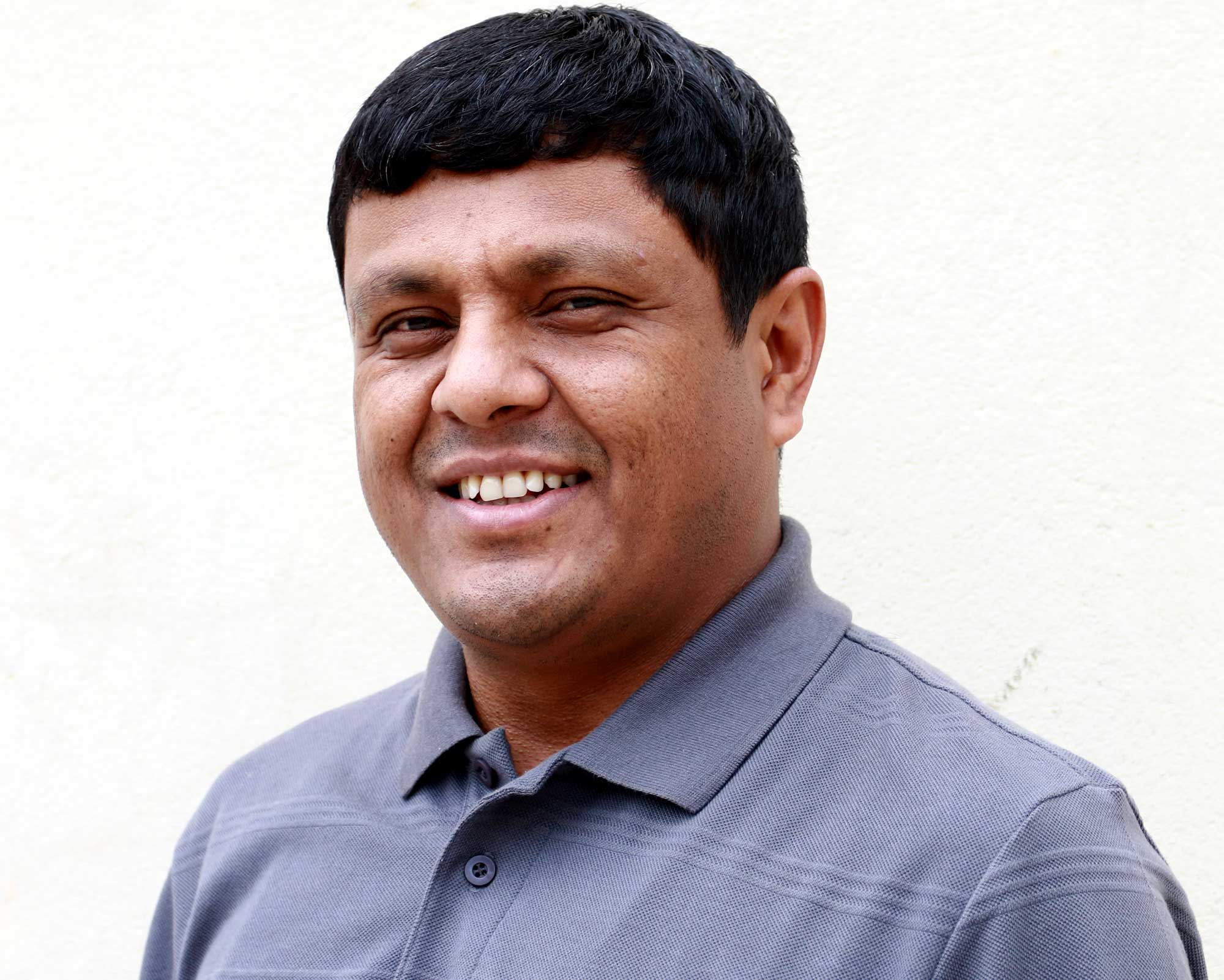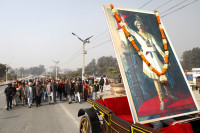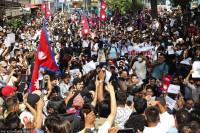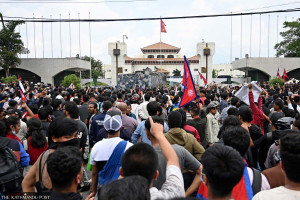Opinion
Towards a transformative justice
Nepal may continue to experience social conflict as long as issues of marginalisation are ignored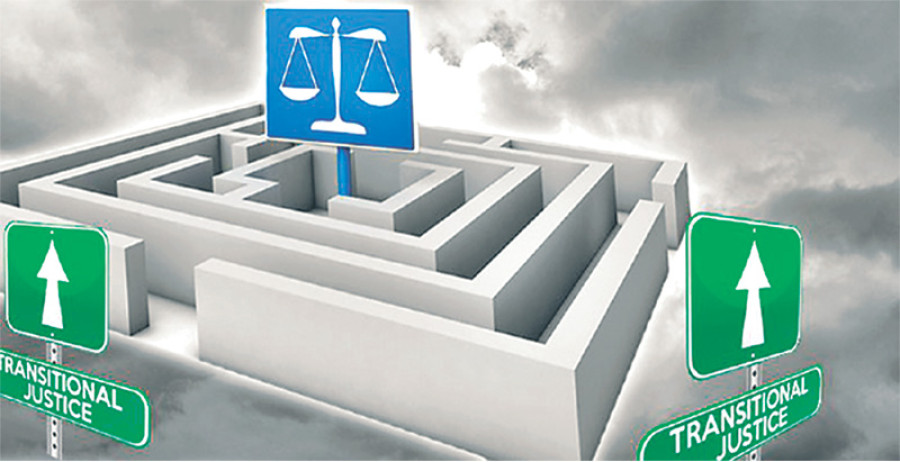
Ram Kumar Bhandari & Simon Robins
Nepal’s peace process has been hailed as a success both at home and abroad simply because armed conflict has not resumed. Domestically, political elites laud a successful transition through which they have re-established a polity in which all major political actors, from both sides of the conflict, have consolidated their positions and ensured a continuation of patronage-based, corruption-driven governance. On the 10th anniversary of the signing of Nepal’s Comprehensive Peace Agreement (CPA), it is useful to comment on the extent to which the current condition of both nation and state contradict the ambition of that document. While the political transition appears to be complete, the transformation promised by the CPA is as far away as ever. The CPA envisaged “progressive political, economic and social transformation in the country”, “eliminating the current centralised and unitary form of the state [and] ending discrimination based on class, caste, language, gender, culture, religion and region”, and “ending feudal land ownership”—ambitions that remain very far from today’s reality. The CPA foresaw an addressing of horizontal inequalities that map on to caste and ethnic difference, precisely the fractures along which dramatic tensions remain and which have failed to be settled by the promulgation of the new constitution.
The failures of the transformative ambitions of the CPA reveal not only the political limitations of the peace process, but represent a lost opportunity to address injustice. The impact of this failure is that a majority of Nepal’s population continues to be denied the opportunities granted to a minority, because of who they are or where they are. Presenting this failure of the transition as a justice issue offers new opportunities for trying to advance a transformative agenda. Donors appear to have largely abandoned a broader justice agenda, including social exclusion, in favour of the primacy of advocacy for a narrow agenda of judicial accountability for crimes of the conflict, despite the challenges to this in the current political environment. The gv overnment meanwhile is delighted to return to a post-conflict ‘business as usual’ in terms of a development agenda, from which issues of social exclusion are increasingly marginalised, and the continued flow of donor funds that can help sustain the political economy of patronage. The greatest threat of such an approach is that the divisions that drove the conflict remain, and continued challenges to the discriminatory state, as we have seen in the Tarai, will emerge.
Transitional justice mechanisms
Some of the few novel institutions envisaged by the CPA that have been created are the transitional justice commissions, the Truth and Reconciliation Commission (TRC) and the Commission for the Investigation of Enforced Disappeared Persons (CIEDP). Both however have been constrained in their work by a law that fails to meet international standards and the denial by government of the resources they need to operate. Efforts are continuing to amend the law that would ensure that the Commissions are not part of a process guaranteeing impunity, and which would permit significant support from international donors, including both resources and expertise.
Allowing the Commissions to be properly resourced and to work effectively would present the possibility of reconsidering what we mean by justice in transition, and including in their remit the issue of social transformation as a justice issue. While the TRC was created most visibly to address acts of violence of the conflict, its mandate appears to include a remit to investigate structural violence by examining violations of social and economic rights through consideration of “any kind of inhuman acts inconsistent with international human rights or humanitarian law”. This suggests that in addition to truth-telling about acts of violence during the conflict, the TRC could investigate the rights violations of social exclusion, seeking to tell the history and record the impact of discrimination by caste, ethnicity, geography and gender that were the root causes of conflict. Victims of the conflict have consistently articulated that issues of livelihood and social and economic status are a priority for them.
The Act that created the Commissions sets out the role of the TRC to identify perpetrators, and initiate reconciliation and a reparations process. Given that reparation must include restitution, compensation, rehabilitation, satisfaction and guarantees of non-repetition for victims of such violations, this could provide a route for addressing social, economic and political exclusion. The human rights arguments for such an approach are rooted in guarantees of non-repetition that are arguably the key element of transitional justice as a future oriented approach to the past. All the mechanisms of transitional justice are intended to contribute to ensuring that violations do not reoccur, and this drives reform of institutions linked to violations, most notably the security forces and the government itself.
Equal and engaged citizens
The violations of Nepal’s conflict were driven by social, economic and political marginalisation of sections of society. This is true in both general terms—those who fought for the Maoists felt there was no other way they could change the fact of their exclusion, and in the specific—for example disappearances in Bardiya were embedded in a conflict over land between recently arrived caste Hindus of hill origin and the indigenous Tharus. Nepal seems likely to be condemned to continue to experience social conflict in the future as long as these issues are ignored. While the state seems able to ensure these do not explode again into large scale violent conflict—as seen in the Madeshi movement of last year—a failure to ensure some movement towards equality ensures a continuing institutionalisation of injustice. Seeking to guarantee non-repetition of such violations would demand that the TRC propose legislative and other approaches that would serve to end exclusion. Such recommendations could include a shaping of the nature of federalism as well as potentially advocating for measures such as reservation. An effective approach is also likely to have the goal of renegotiating the relationship of the excluded with the state, building confidence and empowering communities to be able to play a role they have long been denied, as equal and engaged citizens.
In contrast to victims of acts of violence, the victims of such violations would have to be understood collectively, in terms of communities defined by geography, caste or ethnicity. The TRC would likely have to work with experts and academics who could support them by both reviewing the considerable existing data concerning exclusion and by conducting research among excluded communities. This could ensure an understanding of the nature and impacts of exclusion and community needs and perceptions that could inform a reparative approach. The role of the Commission would be to put the historical facts of such exclusion on record, ensuring that a state institution both records and acknowledges historical exclusion, with the TRC acting as a diagnostic lens on marginalisation, outlining its roots, drivers and consequences, to inform governments that have forgotten the commitments they made in the CPA. One cannot have an illusion that this would automatically lead the government to a radical and progressive approach towards realising the ambition of the CPA concerning exclusion. But it would put on the record the fact of such exclusion and constitute a first state institutional proposal towards addressing it. In the absence of any other apparent pathways to achieving the justice promised to the nation at the end of the conflict, this provides an understanding not only of transitional justice but of a transformative justice in transition.
Bhandari is an activist and a PhD researcher at NOVA Law School, New University of Lisbon; Robins is a senior research fellow at the Centre for Applied Human Rights, University of York




 5.52°C Kathmandu
5.52°C Kathmandu